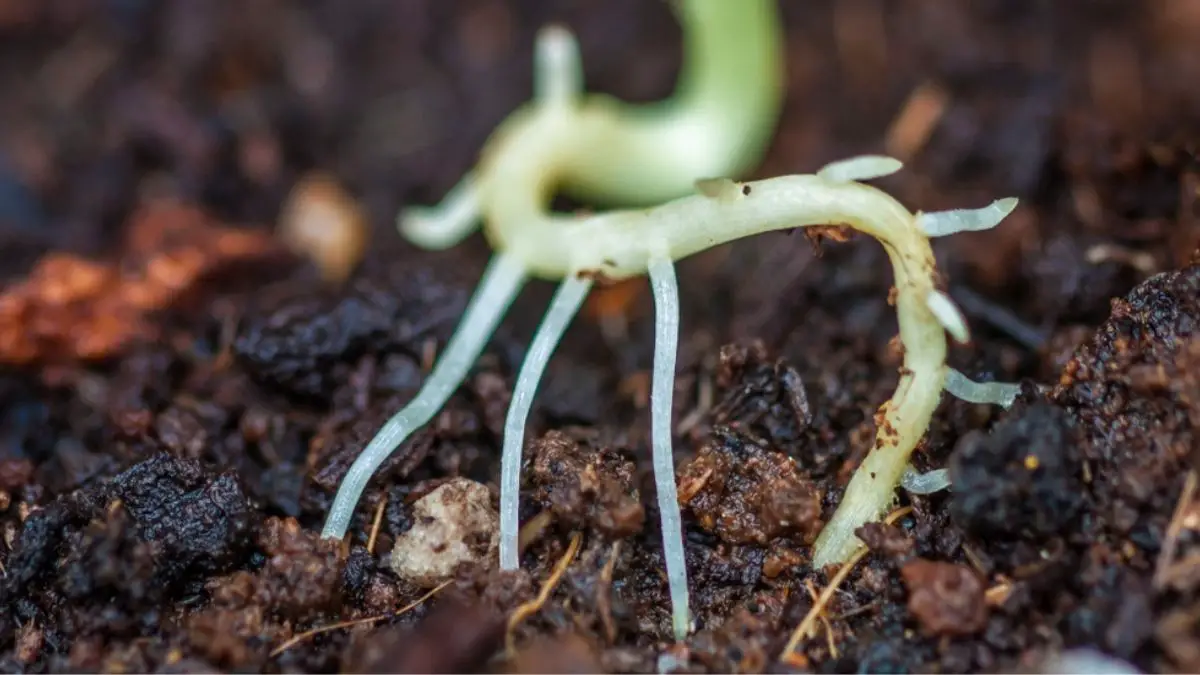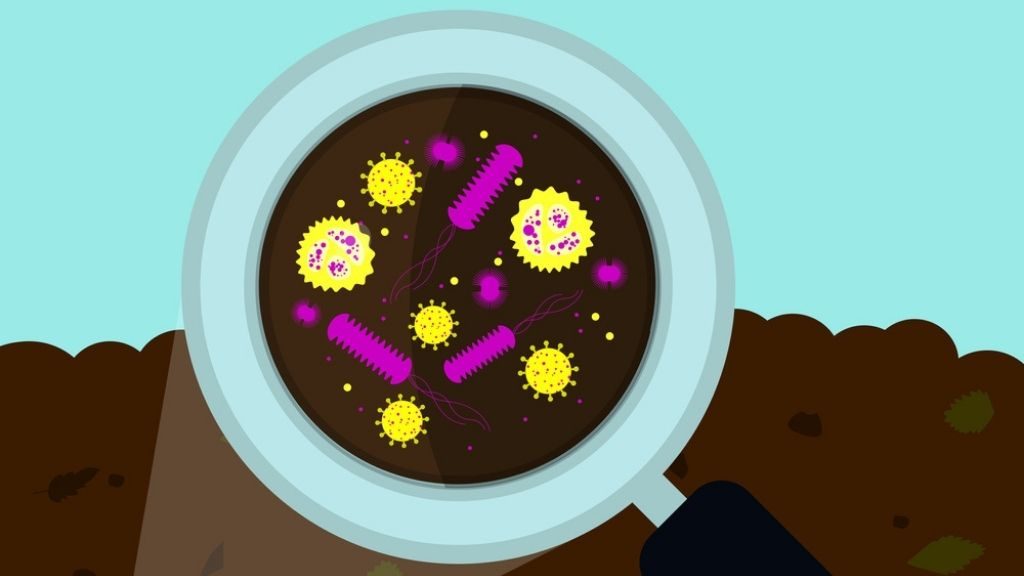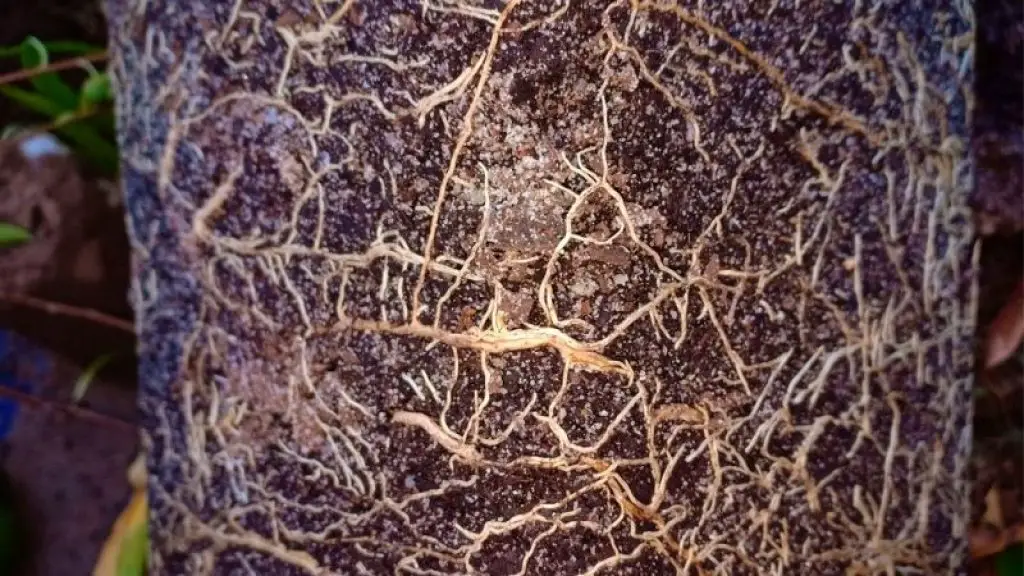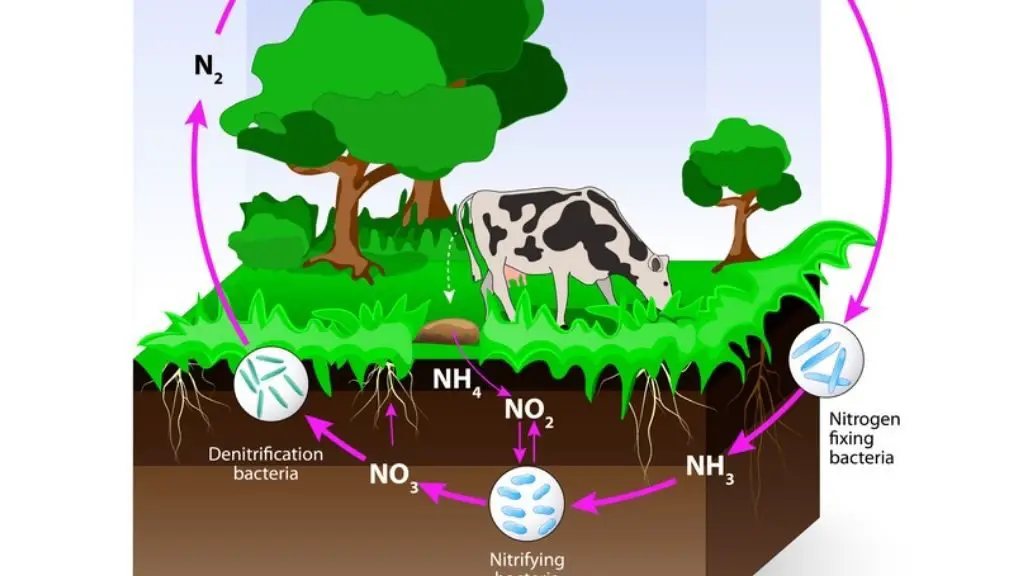Beneficial Bacteria for Plants: See How They Support Them

Plants live in complex environments where they interact with many harmful organisms like herbaceous insects and pathogens. There are some goods in the world as well. For plants, this statement becomes true when we talk about their interaction with bacteria. When you hear the word bacteria, I am sure that a negative image is formed in your brain. Let us tarnish it by describing to you about Beneficial Bacteria for Plants.
To your surprise, soil bacteria have been used for crop production for decades. The interaction between plant and plant-bacteria determines overall plant health. Don’t worry, this interaction has been described in detail.
What if I tell you beneficial bacteria for plants are responsible for driving nutrients, organic water cycling, soil restoration & fertility, and ecosystem primary production. So without any further ado, let’s find out the benefits of bacteria in the soil!
What is Beneficial Soil Bacteria?
Let’s discuss the beneficial bacteria definition first. Beneficial soil bacteria are those that create a symbiotic relationship with plant roots, which produce plant growth hormones, promote nutrient mineralization, and are antagonists of the plant’s parasite.
Bacteria are a crucial workforce of soils as it breaks down the nutrient and releases them to the root zone. According to the food and agricultural organization, bacteria is the most valuable life form in the soil. But where are they found? They are present in the soil of plants naturally. But in some cases, they are added to soil either by inoculation or by applying agricultural management techniques.

Role of Beneficial Soil Bacteria
Just like water has the role of hydration, Soil Bacteria also play some vital roles:
- They supply nutrients to the plant. They break down and release organic matter which releases nutrients in the root zone.
- They are responsible for the production of plant hormones which leads to stimulation for plant growth.
- They control or inhibit the activities of the pathogens in the roots of the plant.
- They are also very helpful in improving the overall plant health.
- They also carry out processes like nitrogen fixation and nitrogen mineralization in plants. In our atmosphere, Nitrogen is present in abundance. But plants cannot uptake this nitrogen. In order to uptake atmospheric nitrogen, it should get transformed into a specific shape for uptake. With Nitrogen fixation, bacteria add nitrogen in the soil to reduce nitrogen deficiency.

List of Beneficial Bacteria for Plants (Beneficial Bacteria Examples)
The symbiotic relationship of plants with microorganisms not only helps in plant growth and development but also has an important impact on plants’ ability to cope with stress.
Many bacteria are found in soil. As we have said before, Different Bacteria are responsible for plant growth and killing harmful pathogens present in the soil. Moreover, they control water cycling in plants and promote nutrient mineralization. These are some amazing benefits, right? To thank them, here is the list of some beneficial bacteria for plants you should know.
Symbiotic N2-fixing bacteria
Do you know our atmosphere consists of more than 78 percent Nitrogen? But if it is present in abundance, then why soils are deficient in this nutrient?
The reason is that plants cannot consume such nitrogen on their own. For this to happen, plants need the help of bacteria. Nitrogen-fixing bacteria get assimilative nitrogen for plants This bacteria is very important for plants as they supply vital nutrients that plants cannot obtain from the air themselves. It takes nitrogen from the air as a gas and releases it into the soil as ammonia. That is why it is called as best beneficial bacteria for plants.

For your information, it is the best option for plants to uptake nitrogen as they can consume it from the soil only (and not from artificial fertilizers). In return, plants provide food and shelter to nitrogen-fixing bacteria. Thus, it is a win-win situation for both plants and bacteria.
Non-symbiotic N2-fixing bacteria
It is a useful bacteria for Agriculture sector to produce high yields. Non-symbiotic N2-fixing bacteria are free-living bacteria that interact with C3 and C4 plants. It helps in increasing crop production and the vegetative growth of plants. How? They fix more than 90 percent nitrogen from the environment and play an important role in the nitrogen cycle. Therefore, it is one of the beneficial bacteria for plants.
Phosphorus-solubilizing bacteria
Phosphorus is the essential macronutrient in plants’ growth and development. It is present in the form of both organic phosphate and inorganic phosphate in the soil.
Phosphorus-solubilizing bacteria convert insoluble phosphate in a form accessible to the plant. The concentration of phosphorus in soil is usually very low. Hence, the plant seeks the help of phosphorus-solubilizing bacteria to convert Phosphorus into phosphate which helps in the growth of the plant. Thus, it is safe to assume that the role of bacteria in soil is of immense importance.
Want to know How To Harness Beneficial Bacteria In Plants For Root Growth? Then the next section of the Article is for you!
Soil Beneficial Bacteria and their Role in Plant Growth Promotion
Soil beneficial bacteria are very important in the biogeochemical cycle. Why? Because they improve the health of plants. Plant growth promotion can be facilitated both directly and indirectly by soil beneficial bacteria. For decades, they have been used for crop production. Such bacteria improves the soil for the better growth of plants.
Moreover, new plant populations and communities struggle to survive without them. A layer of polysaccharides is produced by soil beneficial bacteria that coat the soil particle. These bacteria play an important role in cementing sand. Furthermore, it improves soil structure by converting silk and clay particles into stable micro aggregate.
Most bacteria neutralize the PH of the soil which helps in better oxidation of soil. Many soil beneficial bacteria in Agriculture secrete special enzymes that convert phosphorus into phosphate. Phosphate is easily consumed by plants for growth and development.
Great White Beneficial Bacteria for Plants
A formula containing a diverse blend of beneficial microbes for plants is present in the great white. Great white do wonders as different beneficial soil microbes are present in it.
1) It enhances water and nutrient uptake. It has diverse uses as it can be used in hydroponics, home gardening, or field agriculture.
2) In the early stage of growth, it is best used as a seed coat and is a vibrant and vigorous plant. Great White is used by professionals for its quality, proven results, and consistency. This powerful formula will ignite plant growth.
3) Moreover, Great White will also give plants the tools they need to maximize yield. It enables water absorption, explosive root growth, increased fruiting and flowering, increased yields and nutrients. In addition to this, Great White increases the overall absorption area of the root system and water uptake ultimately, resulting in a healthier plant.
4) Plant Success Great White beneficial bacteria contain mycorrhizal fungi and beneficial bacteria which suit a variety of soils, climates, and plants. In nature, they greatly enhance plant growth and vigor as these microorganisms thrive in and on plant roots.
Due to these reasons, it is called one of the best beneficial bacteria for soil.
How to Make Beneficial Bacteria for Plants?
After the discovery of the beneficial impact of bacteria, humans want to “make” them more to improve the health of their plants. Let’s see the common method to grow them:
Mycorrhizal Inoculants
Mycorrhiza is tiny fungi structures that are attached to plants’ roots. Mycorrhiza function is similar to the function of roots. It helps roots in uptaking water and nutrients. Moreover, it also protects plants from different kinds of predators. But what do they get in return?
Yes, there is a symbiotic relationship between mycorrhizal and plants. In return, plants give them food and shelter. People ask, how to add beneficial bacteria to the soil and the answer is simple. You can either add it in the liquid form or spray it directly on the roots.
You can buy Mycorrhizal inoculants from online stores and then make your own beneficial bacteria spray for plants. The majority use Rhizophagus irregularis. It is either sprinkled on the roots of the plants or mixed with the seeds before planting. According to experts, playing them directly in the soil is the best method. Search Mycorrhizal Inoculants on amazon.
Mulching
Mulching means covering the soil with plastic or compost. If mulching is done with compost, then it creates a perfect environment for plant beneficial microbes. Mulching is done to avoid sun rays reaching the soil. This causes soil to cool down a bit. Moreover, due to compost covering the soil, the moisture level is also maintained. This becomes ideal for microbes to grow as we all know how these tiny micro-organisms love humidity.
On top of that, compost contains those beneficial microbes which are not even present in commercial inoculants. In addition to this, mulching with compost leads to more nutrients being added. So, colonize your garden with compost as a mulching medium.
Probiotics Whipping
You can also whip your way to cultivate bacteria. You must have the following ingredients:
- Jar
- Molasses
- Water
- Dirt
- Homebrewed microbial mix
Add first four components first. Then spray homebrewed microbial mix. You can also dilute it with water or spray it directly on foliage as well. Try Probiotics Whipping on Amazon.
These three methods are widely used to colonize beneficial bacteria for plants.
Soil Biological Management with Beneficial Soil Microorganisms
Soil microorganisms are present in abundance that improves plant and soil health. Their role can be termed as soil biological management. Check out a few examples of it:
1) Mycorrhizae:
Do you know more than 90 percent of the total plants in this world are Mycorrhizal? It has fungal filaments and works in a symbiotic relationship with plants. It provides protection from pathogens, resistance to water stress, and better nutrient uptake capacity, In return, plants provide the “C” it needs.
2) Rhizobia:
Rhizobia is one of the most beneficial microorganisms for plants. It creates nodules that fix nitrogen. So, it provides plants with the necessary nitrogen it needs for growth.
3) Nematodes:
Nematodes are known to control insect pests and other harmful pathogens. Insect pests the Nematodes control are Termites, weevils, white grubs, armyworms, moths, fruit flies, beetles, locusts, and many more.
On top of that, these beneficial soil microorganisms can be produced in mass quantities and their production is also environmentally friendly.
4) Biocontrol fungi:
To have a high yield, you must ensure that there are enough beneficial bacteria and fungi for plants.
A fungus prevents diseases like root rot, wilt, etc. Some fungi types have also killed larvae and other harmful insects as well. Still, after all these benefits, it is not cultivated much. The reason is the technical difficulties associated with its production.
We have already discussed beneficial soil bacteria above.
- Beneficial soil microbes are an important part and parcel of soil. Useful bacteria for agriculture must be promoted on a larger scale.
Final Words
All in all, we are lucky that beneficial bacteria for plants do arduous work. Nitrogen-fixing bacteria provide nitrogen to plants. Due to this, you don’t need to spend a huge sum of money on fertilizers. In addition to this, such bacteria provide numerous benefits like better soil, increased water retention capacity, and overall top-notch plant quality.
These bacteria are naturally present in the soil. However, you can also add them to soils. Have them in abundance and see their wonders in gardening and farming.
FAQs About Beneficial Bacteria for Plants
Are beneficial bacteria good for plants?
Absolutely Yes, beneficial bacteria are good for plants’ health and growth. They can improve nutrient availability in soil, improve root structure, enhance plant fruit production, and much more.
How do you make good bacteria for plants?
You can make your own batch of good bacteria in five easy steps:
1) Buy some mycorrhizal inoculants and place them on the soil.
2) Mulch these by using plastic or any other thing.
3) Now brew your microbe by whipping.
4) Add some worms to this soil to get plentiful nitrogen.
5) Colonize the microbes and that’s it.
How can you add beneficial bacteria to the soil?
The colonies you have grown of these beneficial bacteria are added into the soil. You should also water it days before this addition.
What organisms help plants grow?
The organisms that help are:
- Bacteria
- Fungi
- Nematodes
- Actinomycetes
Related Topics:








